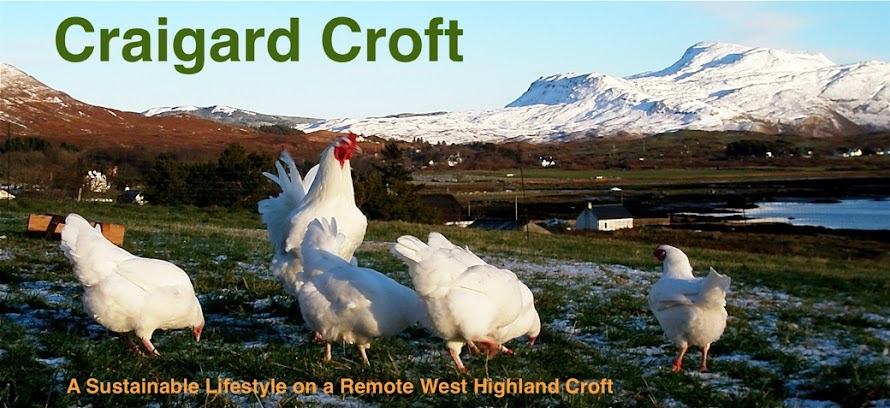You have to milk a goat or a cow by hand to realise just how difficult it is to produce clean milk. Examine the milk filter, you'll find bits of hair, straw, crud and dirt. even machine milking isn't 100% hygienic. What to do? You can make sure that the animal is as clean as possible with clean bedding, regular brushing and cleaning the udder with an antiseptic wipe helps, but stuff you don't want still gets into the pail. This is removed by the filter but the bacteria that you don't see are still in the milk.
 |
| Heat to 72C or 150F for 15 seconds |
Sixty years ago when I was at primary school children got diphtheria, scarlet fever and even TB, these things aren't such a problem now because of pasteurisation, heating to 72C for 15 seconds followed by rapid cooling. Potentially food poisoning with E.coli. Salmonella spp., and listeria is a bigger problem in 2013 and pasteurisation will kill 99.9% of these bugs. This is why you can't sell unpasteurised milk in Scotland. If you produce for your own consumption you have a decision to make.
 |
| Cool quickly and refridgerate |
Raw milk enthusiasts claim that the pasteurisation process destroys beneficial bacteria, enzymes, vitamins and minerals. It does to some extent, but if your milk is part of a balanced diet you'll get them elsewhere and you really don't want food poisoning. So, on balance I am in favour of pasteurisation; it can be done in the kitchen with bits of kitchen equipment. You need a large saucepan or jam pan, a container for the milk, a dairy thermometer, a stove and a kitchen sink. Do it carefully and it really doesn't taste any different either.



1 comment:
I love your blog but do have to carp about the raw milk piece. Yes, if you are not meticulously careful about sterilization of equipment and cleaing off the udder, you can get sick from raw milk. However, my family has a state licensed and inspected raw milk dairy which sells raw milk (only allowed on the farm) as well as yogurt and feta cheese.
In Massachusetts -- we are on an island off the coast -- the state standards and criteria are extremely high. The only problems, state wide, in over 10 years have been with pasteurized milk. In America we've had enormous recalls for bacterial contamination, sickness and deaths from lettuce, spinach, peanut butter, eggs, meats and poultry, etc. -- hundreds of thousands of pounds of food thrown out -- but very few instances of raw milk problems. I'd rather eat raw milk than GMO foods, which can be sold without labeling.
Our island is becoming more self sufficient and that is really good. Good luck and I wanted you to know how much I enjoy your pieces.
Post a Comment